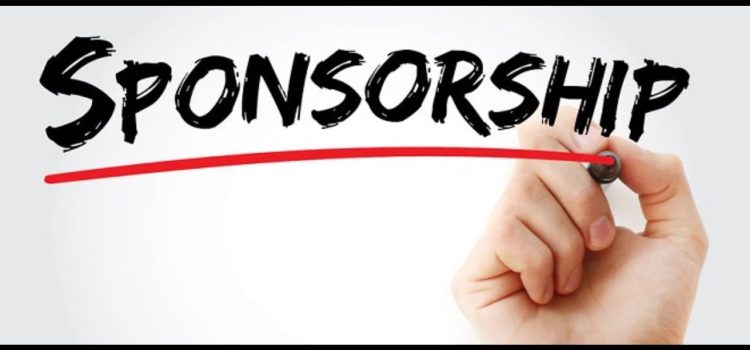
In the vibrant world of live music, securing effective concert sponsorship can be a game-changer for event organizers. Sponsorship not only provides essential financial backing but also enhances the overall concert experience for attendees. This guide will delve into effective strategies for securing and maximizing concert sponsorships, ensuring a successful partnership that benefits both sponsors and organizers.
1. Understanding Concert Sponsorship
Concert sponsorship involves a brand or company providing financial support or resources for a concert in exchange for promotional opportunities and visibility. This relationship can take many forms, from monetary contributions to in-kind support, such as providing equipment or services.
Importance of Concert Sponsorship
- Financial Support: Sponsorship helps cover costs such as venue rental, artist fees, and marketing expenses.
- Brand Visibility: Sponsors gain exposure to a targeted audience, enhancing their brand recognition and customer engagement.
- Credibility: Associating with reputable sponsors can lend credibility to the event, attracting more attendees and building trust.
2. Identifying Potential Sponsors
The first step in securing effective concert sponsorship is identifying potential sponsors that align with your event’s goals and target audience.
a. Research Brands
Look for brands that have a history of sponsoring concerts or events similar to yours. Research their target demographics to ensure they align with your audience. This alignment increases the likelihood of a successful partnership.
b. Consider Local vs. National Brands
While national brands often have larger budgets, local businesses can be equally valuable. They may be more inclined to support community events and engage directly with their customer base. Don’t overlook the potential of local sponsors who are passionate about supporting their community.
c. Create a Target List
Compile a list of potential sponsors with their contact information and relevant insights. This organized approach will streamline your outreach efforts.
3. Crafting a Compelling Sponsorship Proposal
Once you’ve identified potential sponsors, it’s crucial to create a compelling sponsorship proposal that outlines the benefits of partnering with your concert.
a. Outline the Benefits
Clearly articulate what sponsors will gain from their investment. Consider including:
- Brand Exposure: Highlight how their logo will be displayed on promotional materials, signage, and merchandise.
- Engagement Opportunities: Describe how sponsors can interact with attendees through product samples, contests, or exclusive experiences.
- Media Coverage: If applicable, mention any media partnerships that will cover the event and the sponsor’s involvement.
b. Create Different Sponsorship Levels
Offer multiple sponsorship tiers to accommodate different budgets. For example:
- Title Sponsor: The highest level with maximum visibility.
- Gold/Silver/Bronze Sponsors: Mid-tier options with varying benefits and exposure.
c. Include Metrics and Data
If you have organized concerts in the past, include data from previous events. Metrics such as attendance numbers, social media engagement, and media coverage can provide potential sponsors with a clearer picture of the value they would receive.
4. Building Relationships with Sponsors
Securing concert sponsorship is not just about the initial deal; it’s about building lasting relationships.
a. Communicate Regularly
Keep sponsors updated on event planning progress and any changes that may affect their involvement. Open lines of communication are essential for building trust and demonstrating that you value their partnership.
b. Provide Opportunities for Engagement
Encourage sponsors to engage with attendees before, during, and after the concert. This could include social media shout-outs, contests, or branded experiences. Engaging the audience helps sponsors connect with potential customers.
c. Solicit Feedback
After the concert, ask sponsors for feedback on their experience. Understanding their perspective can help improve future partnerships and demonstrate your commitment to their success.
5. Delivering Value During the Concert
Ensuring that sponsors receive the value they were promised during the concert is crucial for securing future partnerships.
a. Implement the Sponsorship Agreement
Make sure that all elements of the sponsorship agreement are fulfilled. This includes logo placements, promotional mentions, and any specific engagement activities promised.
b. Capture Engagement Metrics
During the concert, capture metrics related to sponsor engagement. Monitor how many people interacted with sponsor booths, shared social media posts, or participated in contests. This data is invaluable for post-event reporting.
c. Create an Engaging Atmosphere
Help sponsors create memorable experiences for attendees by providing engaging activities or contests. A well-executed activation can leave a lasting impression of the sponsor’s brand.
6. Post-Event Follow-Up
After the concert, the relationship with your sponsors should continue.
a. Send Thank-You Notes
Express gratitude to your sponsors for their support. A personalized thank-you note can go a long way in building rapport and showing that you value their partnership.
b. Provide a Recap Report
Compile a detailed report that outlines the success of the event, including attendance figures, engagement metrics, and media coverage. Include how the sponsors’ contributions made a difference. This transparency helps build trust and credibility.
c. Discuss Future Opportunities
If the concert was successful, discuss potential future sponsorship opportunities with your sponsors. This can lead to long-term partnerships that benefit both parties.
7. Leveraging Social Media for Sponsorship Exposure
In today’s digital age, social media is a powerful tool for maximizing sponsorship exposure.
a. Promote Sponsors on Various Platforms
Use your event’s social media accounts to promote sponsors before, during, and after the concert. Share posts that highlight their involvement and encourage attendees to engage with their brands.
b. Create Engaging Content
Develop engaging content that showcases sponsors’ products or services. This could be through videos, interviews, or live streams that feature sponsors during the concert.
c. Utilize Hashtags
Create a unique event hashtag that sponsors can use to track engagement and conversations on social media. Encourage attendees to use this hashtag when sharing their experiences.
8. Evaluating Sponsorship Success
After the event, it’s important to evaluate the success of your sponsorships.
a. Analyze Data and Metrics
Review the data collected during the concert to assess sponsor engagement. Analyze attendance numbers, social media interactions, and any other relevant metrics to gauge the effectiveness of the sponsorship.
b. Gather Feedback from Sponsors
Reach out to sponsors for their feedback on the partnership. Understanding their perspective can provide valuable insights for future events and help you improve your approach.
c. Document Lessons Learned
Take detailed notes on what worked well and what didn’t. This documentation will be invaluable for planning future events and improving your concert sponsorship strategies.
Conclusion
Effective concert sponsorship is a multifaceted process that requires careful planning, relationship-building, and continuous evaluation. By identifying potential sponsors, crafting compelling proposals, and delivering value both during and after the concert, you can secure successful partnerships that enhance your event. Remember that the goal is not only to secure funding but to foster long-lasting relationships that can lead to future collaborations. With the right strategies in place, you can elevate your concert experience while maximizing revenue through sponsorships.









